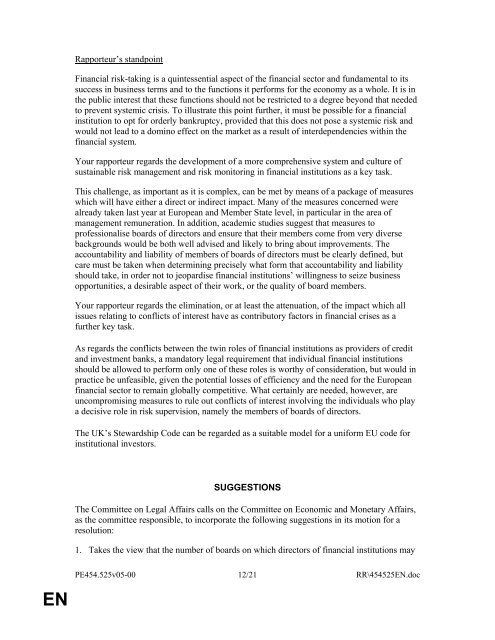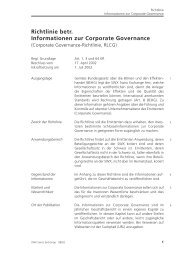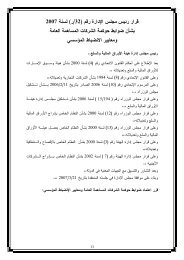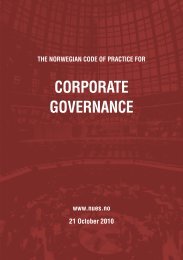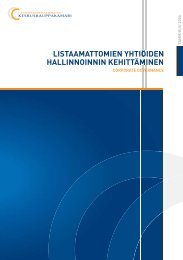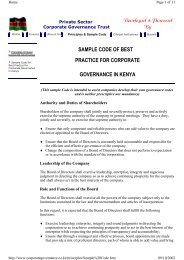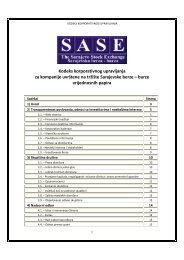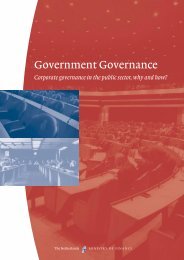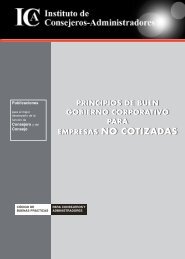EN EN REPORT - European Corporate Governance Institute
EN EN REPORT - European Corporate Governance Institute
EN EN REPORT - European Corporate Governance Institute
Create successful ePaper yourself
Turn your PDF publications into a flip-book with our unique Google optimized e-Paper software.
Rapporteur’s standpointFinancial risk-taking is a quintessential aspect of the financial sector and fundamental to itssuccess in business terms and to the functions it performs for the economy as a whole. It is inthe public interest that these functions should not be restricted to a degree beyond that neededto prevent systemic crisis. To illustrate this point further, it must be possible for a financialinstitution to opt for orderly bankruptcy, provided that this does not pose a systemic risk andwould not lead to a domino effect on the market as a result of interdependencies within thefinancial system.Your rapporteur regards the development of a more comprehensive system and culture ofsustainable risk management and risk monitoring in financial institutions as a key task.This challenge, as important as it is complex, can be met by means of a package of measureswhich will have either a direct or indirect impact. Many of the measures concerned werealready taken last year at <strong>European</strong> and Member State level, in particular in the area ofmanagement remuneration. In addition, academic studies suggest that measures toprofessionalise boards of directors and ensure that their members come from very diversebackgrounds would be both well advised and likely to bring about improvements. Theaccountability and liability of members of boards of directors must be clearly defined, butcare must be taken when determining precisely what form that accountability and liabilityshould take, in order not to jeopardise financial institutions’ willingness to seize businessopportunities, a desirable aspect of their work, or the quality of board members.Your rapporteur regards the elimination, or at least the attenuation, of the impact which allissues relating to conflicts of interest have as contributory factors in financial crises as afurther key task.As regards the conflicts between the twin roles of financial institutions as providers of creditand investment banks, a mandatory legal requirement that individual financial institutionsshould be allowed to perform only one of these roles is worthy of consideration, but would inpractice be unfeasible, given the potential losses of efficiency and the need for the <strong>European</strong>financial sector to remain globally competitive. What certainly are needed, however, areuncompromising measures to rule out conflicts of interest involving the individuals who playa decisive role in risk supervision, namely the members of boards of directors.The UK’s Stewardship Code can be regarded as a suitable model for a uniform EU code forinstitutional investors.SUGGESTIONSThe Committee on Legal Affairs calls on the Committee on Economic and Monetary Affairs,as the committee responsible, to incorporate the following suggestions in its motion for aresolution:1. Takes the view that the number of boards on which directors of financial institutions may<strong>EN</strong>PE454.525v05-00 12/21 RR\454525<strong>EN</strong>.doc


